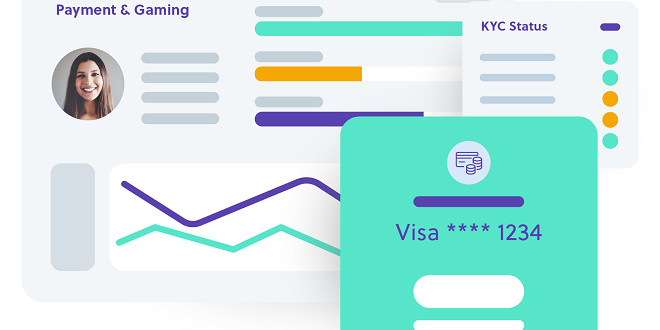The speed at which you can get to market with a certified platform has become a crucial talking point for igaming operators as more US states open their doors to regulated gambling.
We spoke to Daniel Files, Technical Compliance Business Director at Gaming Innovation Group (GiG), to get a better feel for the time and resources involved with certifying a platform and the ‘baseline’ standards for state regulators to build upon.
He also discussed the two main regulatory models at play and the key benefits of GiG Logic, which gives the client the ability to add platform functionality after it has been certified.
SBC: Can you explain to our readers a bit about the time and resources which go into ensuring that an igaming platform is regulation ready for the US?
DF: So it’s quite difficult to put a timestamp on anything. The reality is that the US market is very varied. States can vary quite a bit from each other or they can be quite similar. There’s a lot of invested time and development into meeting an initial jurisdiction’s regulations.
If you’re launching a new platform and you’re just coming into the US, there are going to be a lot of regulations for you to meet. Typically, after that, you’re primarily looking at the differences between any new markets that you’re looking to enter versus markets you’re already in.
iGaming is very new to the US market. A lot of regulators seem to be leveraging what is already existing. If they decide that something is lacking, they add it to what is already existing. So in many cases you have a good base line to build off of.
SBC: If you compare it with more mature markets, such as those in Europe where you have had your platform certified. Are there major differences?

DF: I would say yes. The big difference for the US markets is reporting which is vastly different. The US is very reporting focused for many reasons. The history of gambling in the US spans quite far back – from the very beginnings of the Atlantic City market for specific reasons.
The reporting side of things helps combat money laundering, understanding where funds are coming from and where they’re going – and why. It’s therefore very important to have a reporting focus.
SBC: Is there a baseline whereby you can get a platform ready for a certain state which then gives you a real foundation to enter others?
DF: It varies. We’ve got a very good base line that can be used as we expand. The Gaming Laboratories International (GLI) standards are made public, for free, to facilitate exactly this. The reality here is GLI-19 and GLI-33 certification for event wagering – not just sports but any events – are a great foundation.
New Jersey held a free throw contest when they first opened up skill games. While NJ doesn’t observe the GLI standards, another jurisdiction that does leverage the GLI standards could have a free throw competition and the necessary regulations would already be in place and the GiG platform supports meeting those requirements..
GLI-33 covers all events, including esports and fantasy, which both have the potential to be very big in the future.
SBC: Based on where you’re operational already, would you say that state regulators have got things right so far in terms of how platforms have to set themselves up?
DF: That’s a tricky question. I think that with the way that things are moving, and because everything is still new in the US, regulators are intentionally diligent to ensure that they’re writing rules which are necessary without being too restrictive. In general, they’re getting things correct.
New Jersey uses its own standards. They’ve come up with their own regulations after years of studying the European regulations as well as other existing US markets and working out what’s important to them. Iowa has taken the approach of leveraging the GLI standards as their baseline, but also added a few additional requirements on top of the GLI standards.
SBC: Looking at your own platform, what would you say is your USP?
DF: First of all, we’re approved in Iowa so we’re already compliant with the GLI standards. There is not a huge delta when it comes to moving into other markets. So for us, that’s a benefit. Something else which is beneficial is our real-time data platform and combining it with our real-time rules engine logic.
The combination of real-time data and logic allows a client to add additional functionality to the platform using the data that you’re already required to maintain to meet the regulations.
So what do I really mean by that? Let’s say the client, already approved and operational in Iowa, is using GiG Logic. The client can leverage GiG’s CMS and Logic to autonomously create a loyalty solution that doesn’t then have to go back to the Independent Test Lab (ITL) for another evaluation since the functionality is already certified along with the platform. Clients can now build upon and leverage the data they’re already collecting to create this loyalty program.
This loyalty program can have a number of different levels of rewards, a functional progress bar and new rewards coming out every month. This can be done with minimal GiG involvement, and gives the client the ability to add functionality after the platform has been certified.
In the US, there are two different regulatory models or structures. You have jurisdictions or regulatory agencies which leverage the ITLs to perform their testing and certification against the jurisdiction’s requirements.
The second model, as seen in places like NJ, is they run their own test lab to certify products. Submissions are sent directly to the state’s lab, they test everything themselves to make sure it meets their requirements. ITLs came about to speed up the time and lower the cost for suppliers because they can certify products for use in multiple markets with only a single submission.
SBC: With regards to the different models that jurisdictions may utilise, does that hold any influence over which states you choose to enter?
DF: Simply, the answer is yes. As new jurisdictions open up, it’s more than likely they’re leveraging existing regulations. My job is to ensure that as new markets open. I’m on top of which regulations are in place, I’m aware of the intent of each requirement and to understand the differences in requirements compared to the markets that we’re already in.
The ITLs also do the same because it’s also to their benefit. They can leverage existing test results. For example, if GiG is operational in market A, where the regulator has adopted GLI-19 standards and then the client decides to enter market B which has adopted the same standards, there’s nothing for us to do except to request a transfer from the test lab to that new market.
So similar to how we’ve leveraged our existing product baseline, the ITL will leverage existing test results. In this situation, the turn around for entering that second market can be very quick.
If a state goes live which has its own set of regulatory requirements but has a large enough customer base, we generally analyse the costs that it would entail to develop and meet those additional requirements to determine whether it’s worth the cost to enter that market. If I’m being perfectly honest though, cases like that seem to be relatively few and far between in the US.
SBC: In Europe, we’re seeing a bit of a trend where various different things are being added into existing regulations. Do you think we could see a similar trend happening in the US where things become even more compliance heavy?
DF: That is very possible. What I will say is that the US is very heavily focused on AML and reporting – so I do think that those cases are possibly mitigated already. Where we’re focusing, however, is on identity theft with online registrations.
So even though you could be carrying out your KYC checks, because there are limited cases where verification of a picture ID is necessary, it may be easier for someone to assume an identity, register that identity and pretend to be that particular person. There have definitely been more cases of that occurring and regulators picked up on it quickly to mitigate that concern.
There are definitely cases where things like that will happen. As we become more technology driven as a society, it will become more of a concern in general – not just with online gaming.
SBC: If we take things back to the GiG platform, would you say it is more set up for online casino rather than sports betting? Or is that a distinction not to be made?
DF: I wouldn’t really say it’s a distinction to be made as far as we’re concerned. But if you’re going to play casino or you’re going to wager on sports, it doesn’t matter, you’re going through the same sign up process on the platform anyway.
The reality here is that the casinos are essentially functioning as a financial institution and they’re held to the same standards and regulations as the financial institutions are when it comes to ID and funds verification. With that in mind, it doesn’t matter whether you’re offering your platform for sports or casino.
SBC: Looking to the future, what’s next for you in the US in terms of how you build out your platform?
DF: Last year, we signed with 11 new clients. So this year, we’re looking forward to the challenge of meeting and/or exceeding that number. As far as functionality goes, we’re looking at ways in which we can bolster our reporting so that it’s more real time allowing clients to leverage Logic as well as being available to the regulator on demand.
SBC: And just finally, how many more new states do you think will open up this year?
DF: I think that there’s currently 22 more states in the pipeline that have at least proposed regulations or are currently talking about regulations.
Of those 22, how many do I think will open? Who knows! It’s really difficult to say. Given the current world affairs, many jurisdictions have seen decreases in revenue and iGaming and sports wagering may be something that can help to increase revenue.









